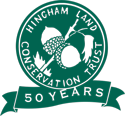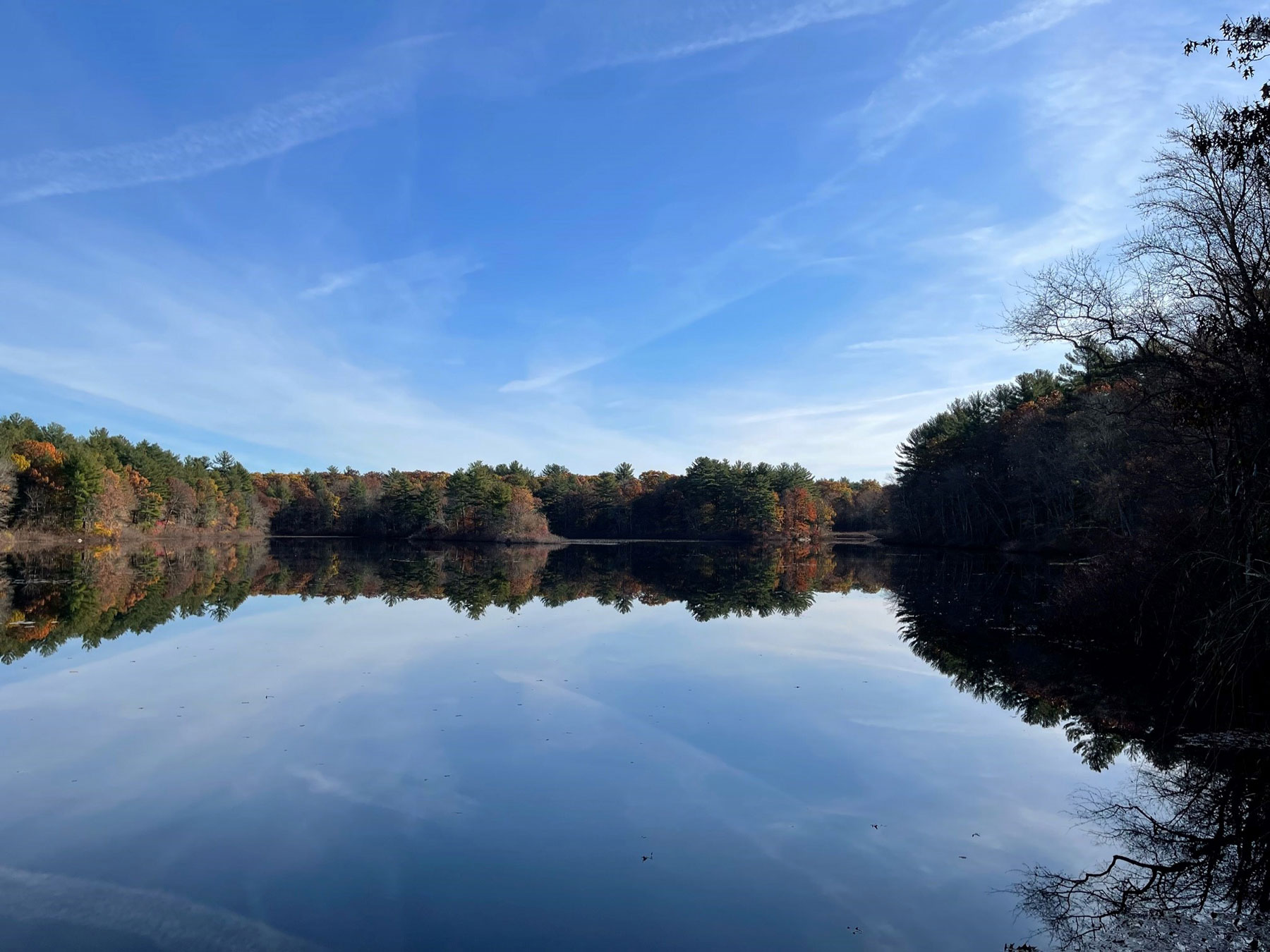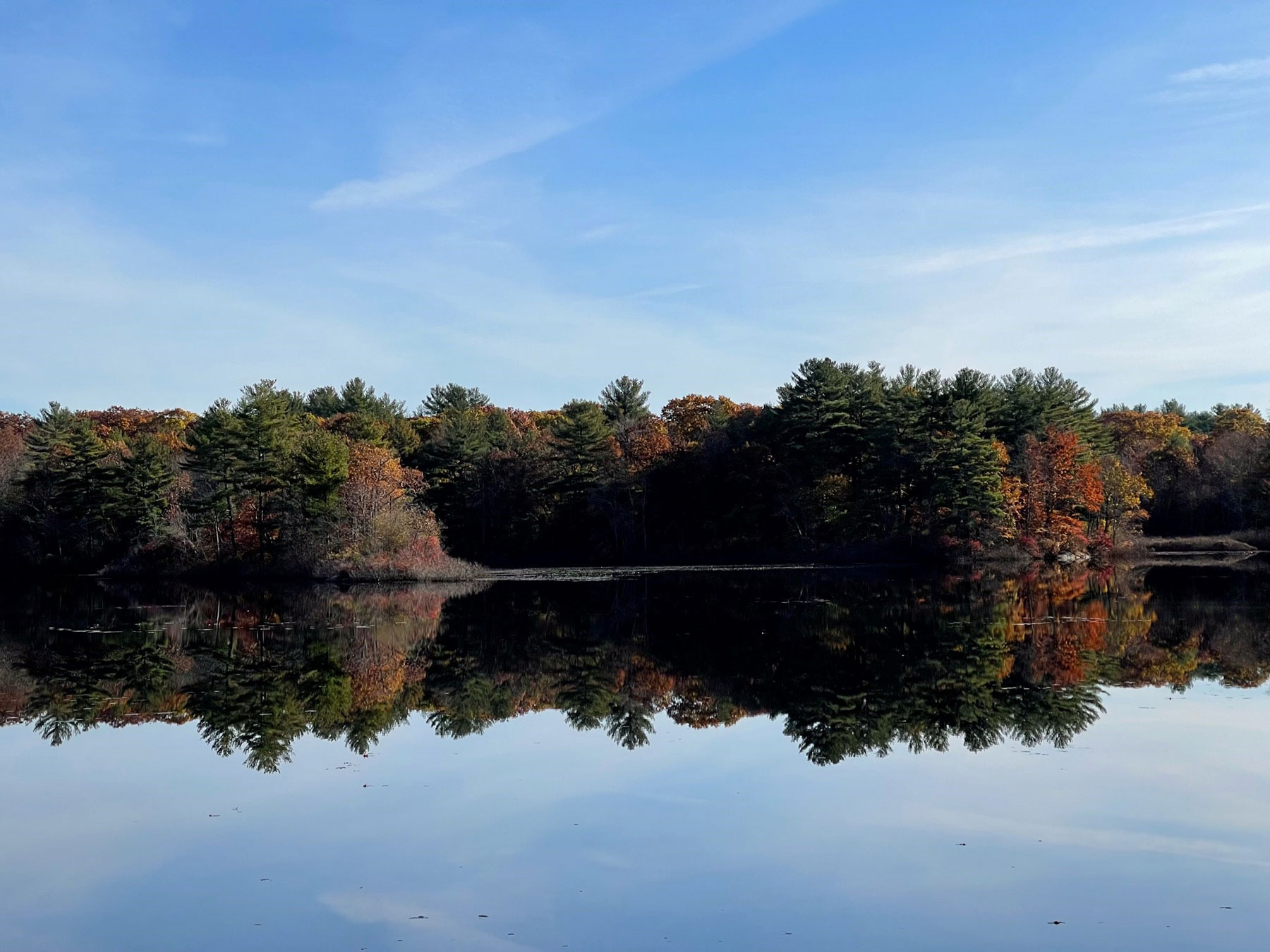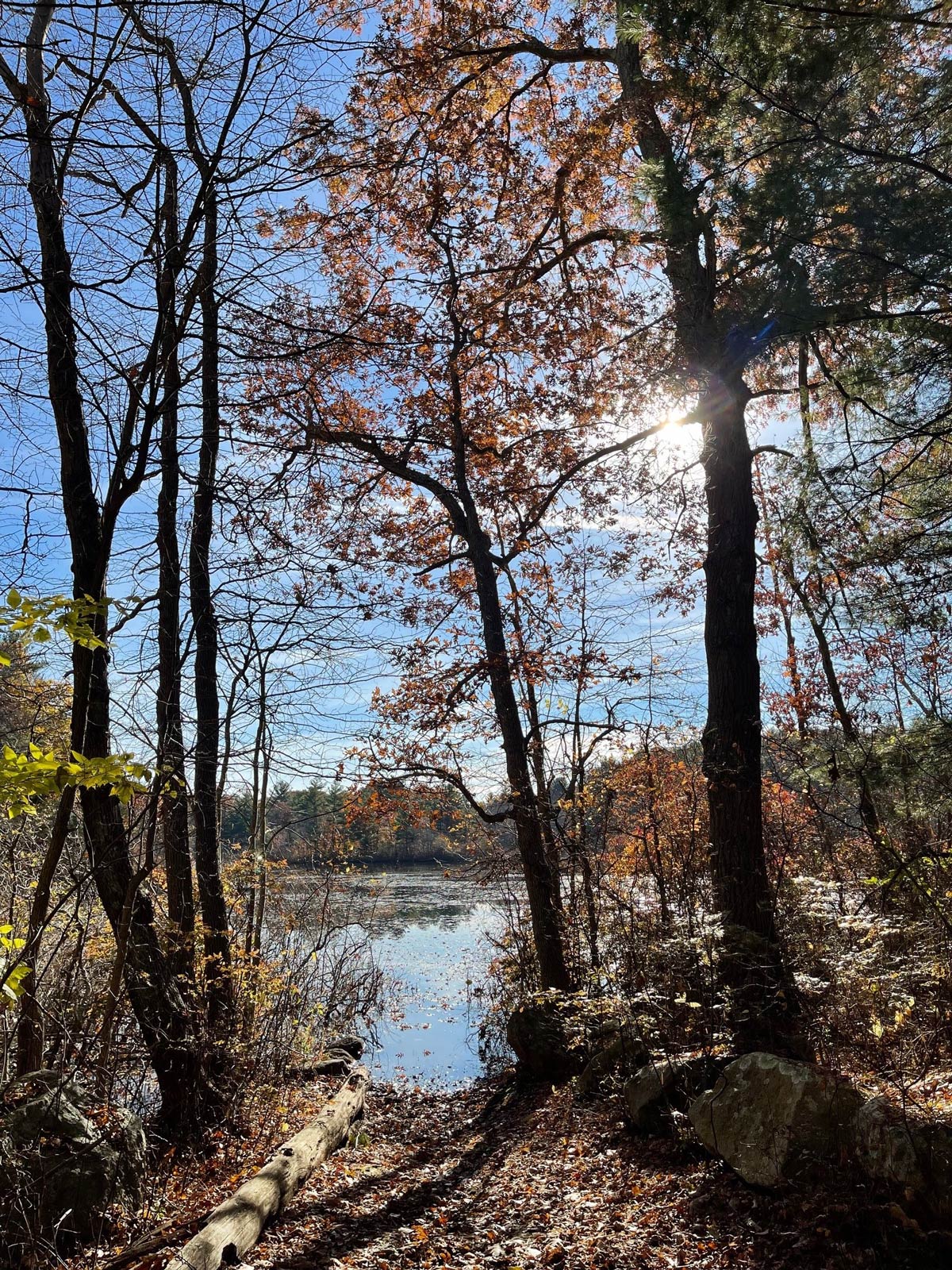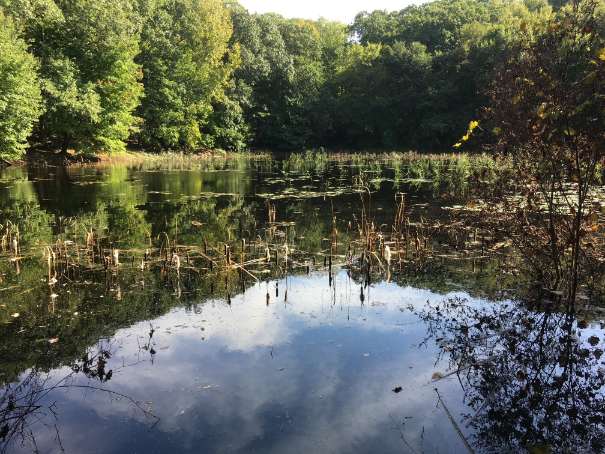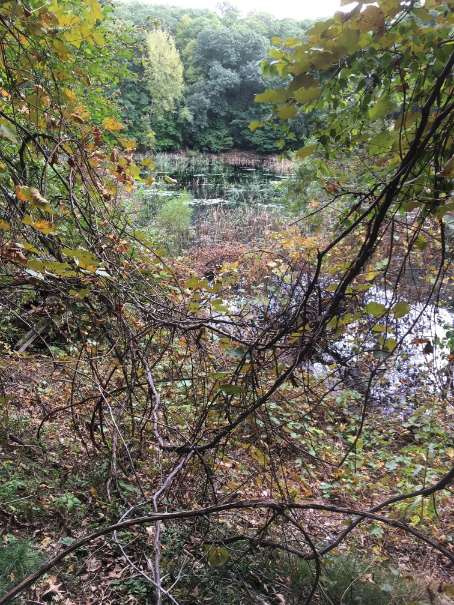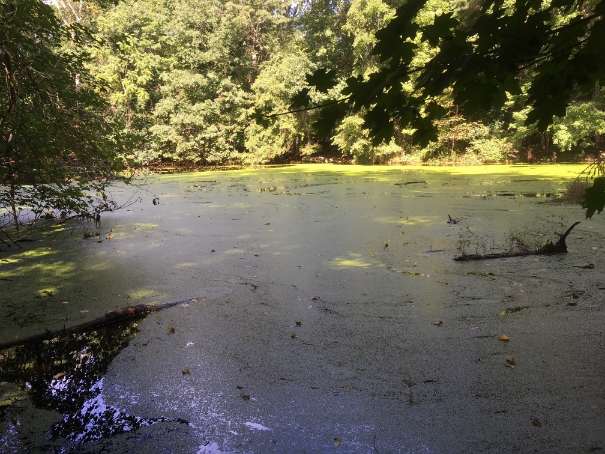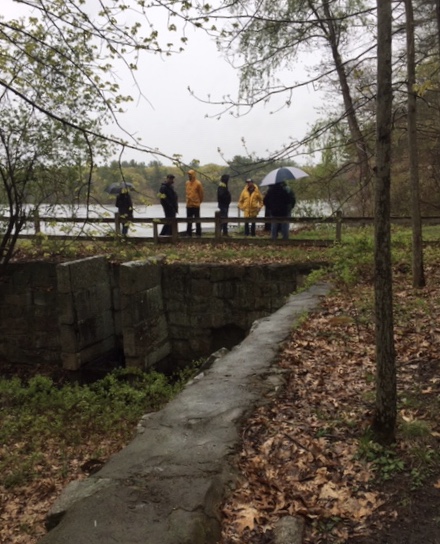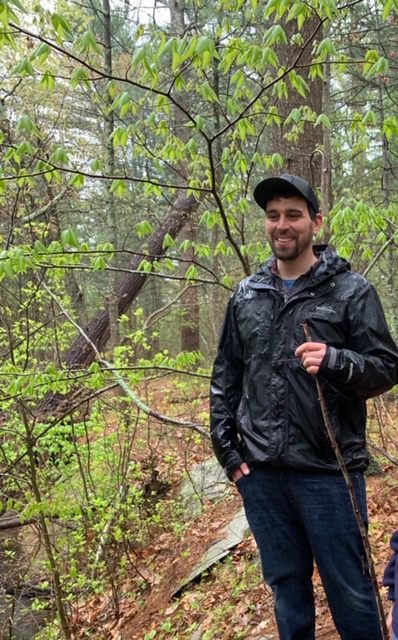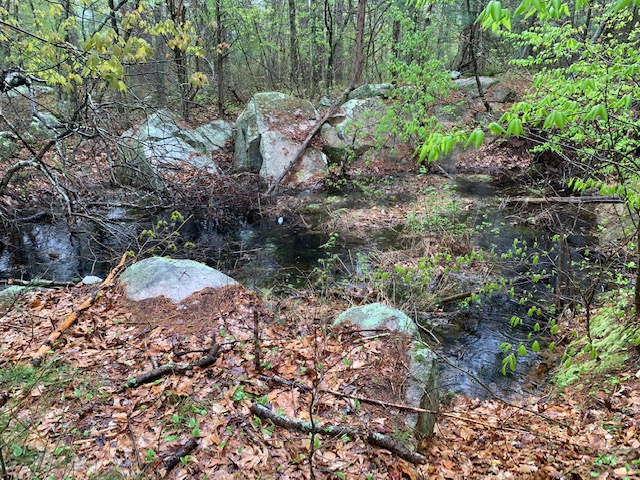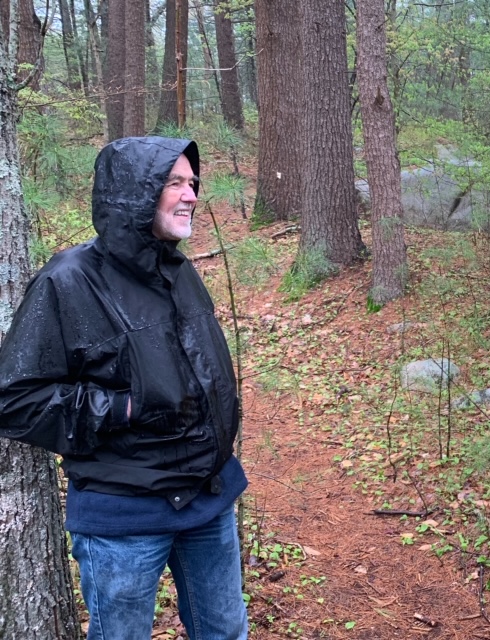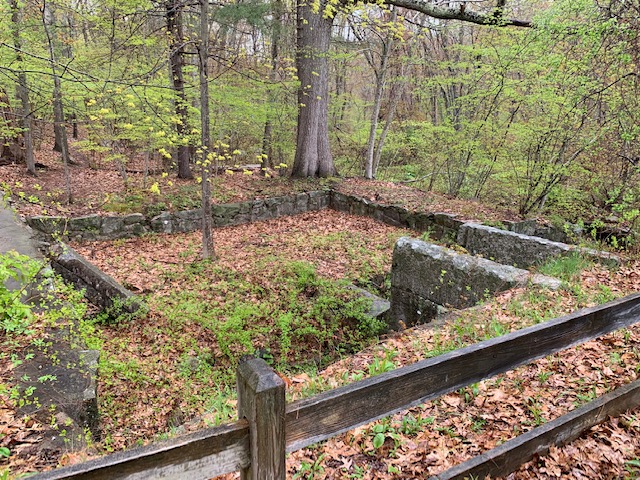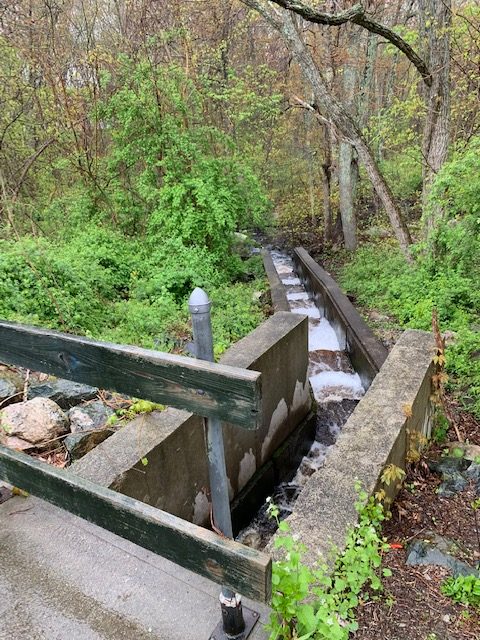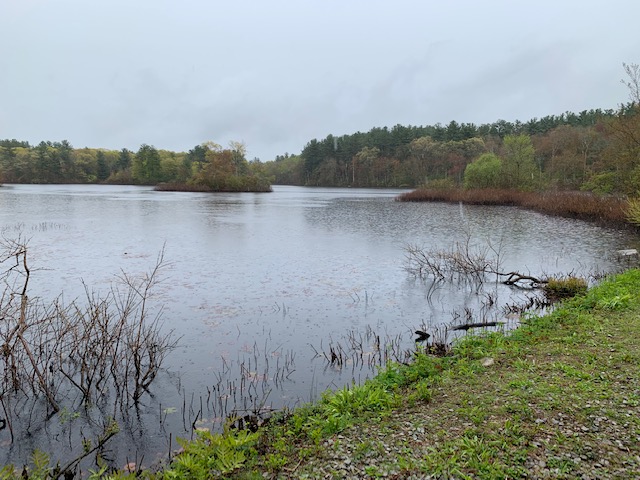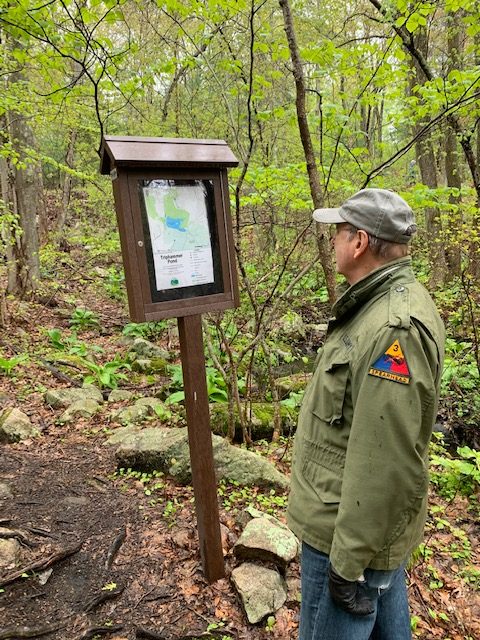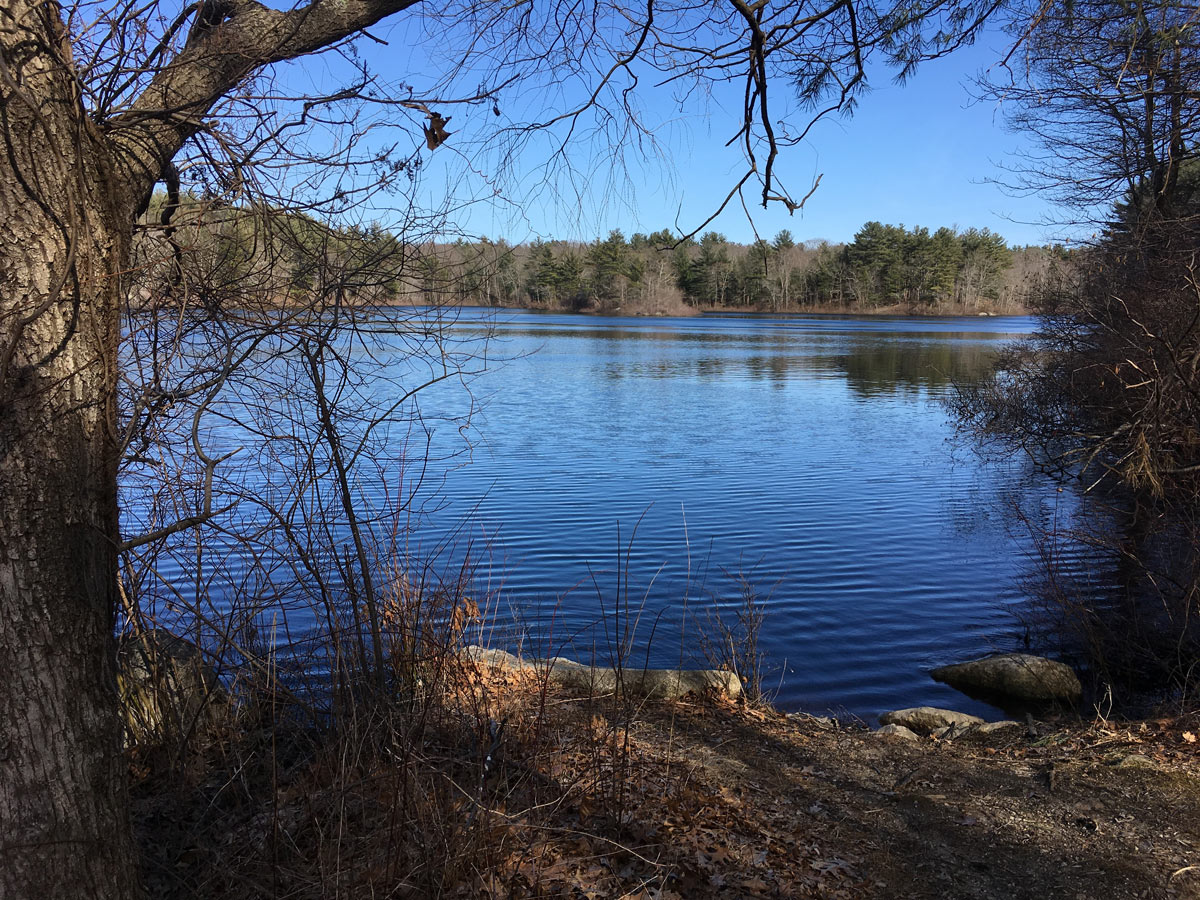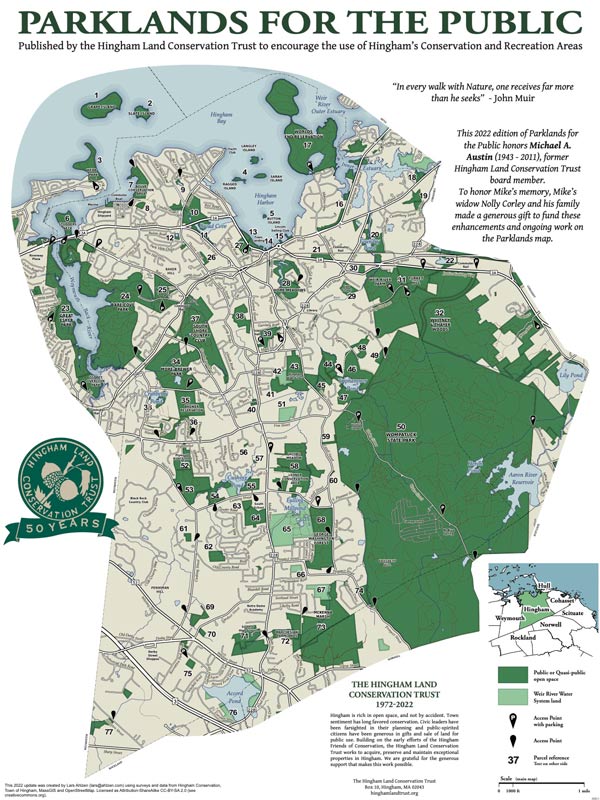Triphammer Woods includes 14 acres of white pines, red maples, American beech, and other hardwoods, 8 acres of oak/hickory forest, and a small, wooded swamp. The forests also have some holly trees. The Triphammer Conservation Area has similar vegetation. The terrain in the Triphammer area is rocky in places, with a number of glacial erratic boulders and several rocky overlooks providing scenic sunsets, fall foliage and views of waterfowl.
The Triphammer Pond trails provide access to multiple recreational activities. These include hiking along narrow wooded trails, views of the pond, picnic areas, benches, wildlife viewing, fishing, boating (non-motorized) and pond skating. A reconstructed old mill dam, fish ladder, spillway, sluiceway, a stone well and remnants of other historic mill features are also found at this location. Seasonal hunting is permitted on this property with a town-issued permit. Hunting is prohibited on Sundays. See the hunting pages on Hingham’s website for details.
This is one of three routes that loop Triphammer Pond. This route approaches the pond from Popes Lane. Another route approaches the pond from the driving range on Union Street and circles Schultz Field on the way to the pond. A third route approaches the pond from the Union Street entrance of Wompatuck State Park.
Access to Triphammer Pond is best obtained off of Popes Lane. A long dirt road provides access to an undeveloped parking lot and a portage area. Additional foot access can be obtained from the Leavitt Street Conservation land or the Golf Driving Range between two house lots donated by a town resident after the loss of Triphammer Lane to the public. Access is also available from Wompatuck State Park and Triphammer Woods. The conservation area is open from dusk to dawn.
To get to the site, drive down Pope’s lane and turn right at a Hingham Conservation Commission Sign between #75 and #84 Pope’s and drive down the ¼ mile long dirt road driveway to the small gravel parking area.
The route begins near a map kiosk in the gravel parking area ¼ miles off Popes Lane. The 0.8-mile route continues down the path to the right of the kiosk to Triphammer dam. At the beginning of the dam the path crosses over the waterway to the fish ladder. The water flows down the ladder into Accord/Triphammer Brook and on to Weir River. From the dam looking left there is a panoramic view of the pond and visiting waterfowl. At the end of the dam on the right are remnants of the foundation for the mill building. There is also a kiosk with information on the mills located at this site. The walk continues along the trail to the left (east) and follows the edge of the pond. The trail is low lying and crosses some wet spots. As the trail nears the east end of the pond it passes remnants of a fence marking the boundary of Wompatuck State Park. The trail rises steeply to a road which passes over the dams across Accord Brook. Turn left onto a short path to the main road which crosses the Accord Brook Dam on the left. At the junction with the main road go right for about 10 feet and turn left onto a short loop trail with views of the brook and former mill sites. Return to the main road and turn right and continue across the dam to the second trail on your left. Turn left down the steep incline and onto the trail. After following the trail for a short distance, you will see a map kiosk. Going forward the trail will rise and fall crossing a rocky outcrop. After a dip, the trail goes right (north) and rises to a spot for viewing the pond looking to the west. The route continues north going downhill. In a short distance the trail follows the edge off the pond to the left (west) and begins to rise. The trail follows a rocky ridge along the north edge of the pond passing a bench and then coming to an open overlook with a picnic bench. The site overlooks the pond with views of birds and beautiful summer sunsets. The trail continues along the ridge until it nears a large rocky outcrop. It then drops steeply to the shore of the pond crossing a 10- to 20-foot-long wet area. The trail rises and turns left across a boardwalk. At the end of the boardwalk on the left is a boat ramp and to the right is the parking lot.

Recommended Trail Activities: Walking, Hiking, Trail Biking Length: .8 Route Type: Trail (Narrow), Path (Medium) Difficulty (Grade/Surface): Moderate, Difficult Parking: Limited Dog Restrictions: Allowed Ancillary Activities: Birding, Boating, Fishing (license may be required), Hunting (permit may be required), Camping (permission may be required), Picnic, Historic Sites
